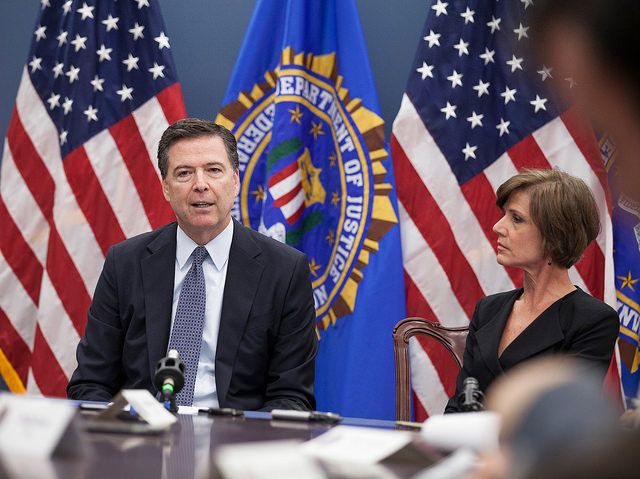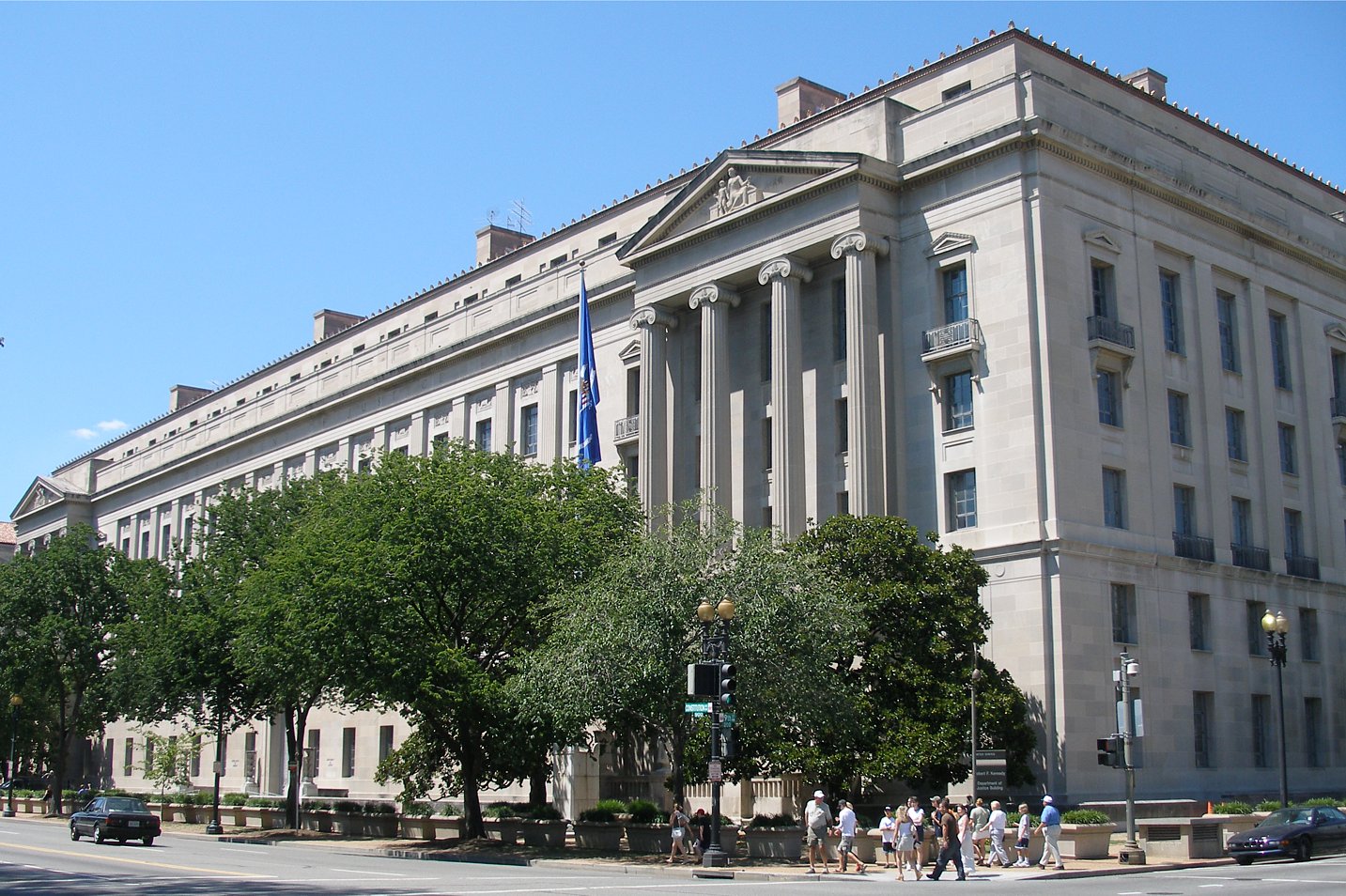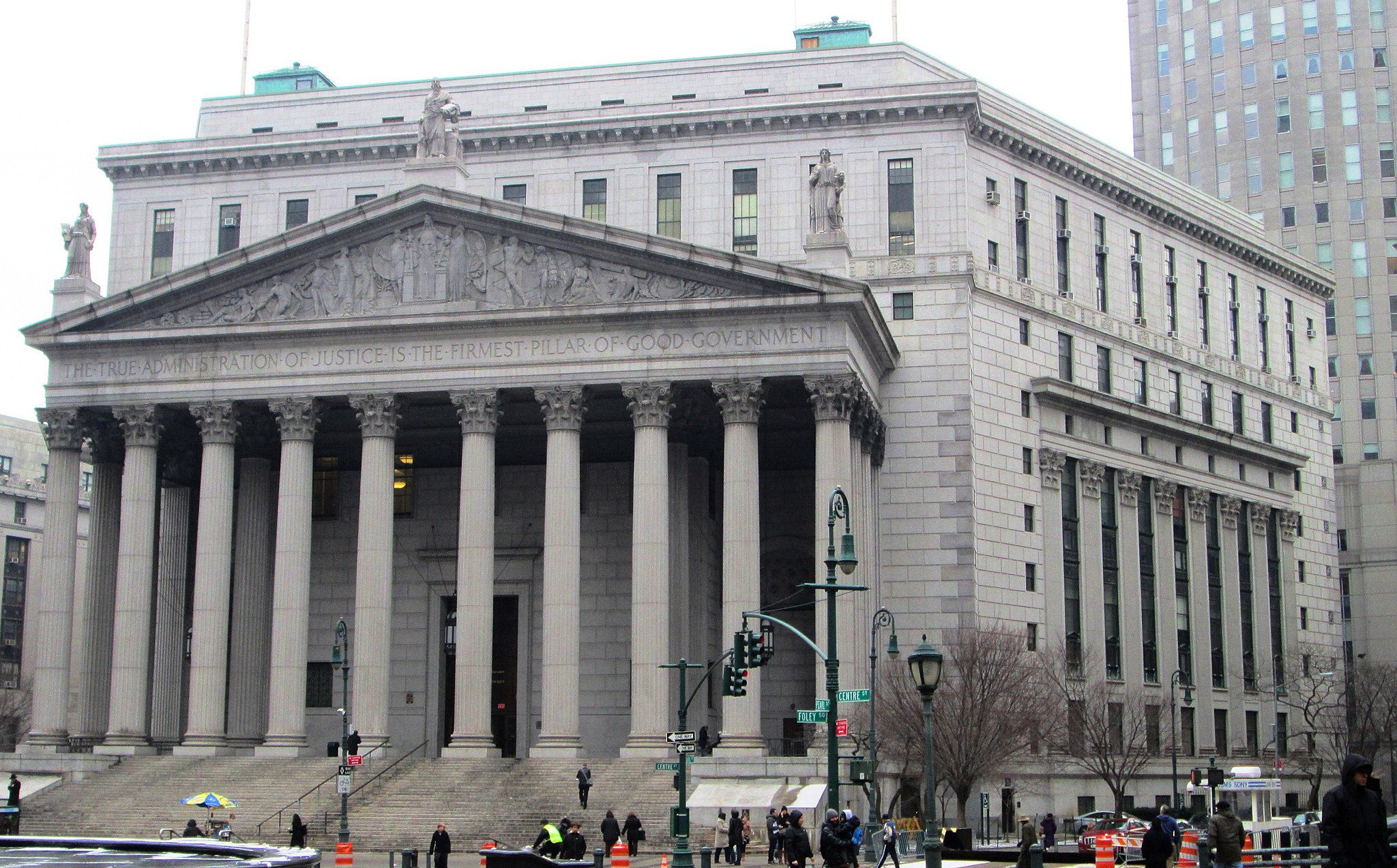James Comey’s 'Higher Loyalty' and His Response to the Inspector General Report
Almost as soon as the Justice Department Office of the Inspector General (OIG) issued its sharp criticism of James Comey’s actions in the 2016 Clinton email investigation, Comey responded with an op-ed in the New York Times.

Published by The Lawfare Institute
in Cooperation With

Almost as soon as the Justice Department Office of the Inspector General (OIG) issued its sharp criticism of James Comey’s actions in the 2016 Clinton email investigation, Comey responded with an op-ed in the New York Times. It was an immediate opportunity for him to answer the inspector general’s conclusion that he had been “insubordinate,” advancing his personal views ahead of "long-standing department policy or practice." Does Comey’s reply leave this debate over his decisions mostly where it stood before the report was issued, or does it clarify the strengths and weaknesses of his conception of ethical leadership in government?
In his recent book, “A Higher Loyalty,” Comey laid out a systematic view of the responsibility of public officials faced with exigent circumstances—what he refers to in the op-ed as a “500-year flood,” an “extraordinary situation … offering no good choices.” The IG report has not changed his view that, as hard as he found the decisions, he did what was right in protecting “institutional values” and guarding against “corrosive damage to … the institutions of justice.” He believes that he chose correctly in July 2016 in reaching and announcing a prosecutorial judgment without coordinating with Attorney General Loretta Lynch or Deputy Attorney General Sally Yates. He also maintains that he acted properly that October by notifying Congress on the eve of the election that he was reopening the inquiry to review thousands of emails found on former congressman Anthony Weiner’s laptop.
When considered along with the reflections in his book, Comey’s answer to the IG report exposes a curious tension, if not an inconsistency, between his stress on the imperative of individual ethical decision-making and his endorsement of the IG process. He commends the report as the product of a process that "all of us should stand up and support." In fact, he writes that the accountability and transparency achieved by the inspector general's review is a stellar demonstration of “how the process is supposed to work." And yet he does not agree with the conclusion of this process about process; namely, that he acted in violation of departmental practices, policy and norms.
So in what way can Comey then say that accountability has carried the day? Comey embraces those findings that affirm the merits and impartiality of his judgment that former secretary Hillary Clinton committed no violation of the law. To be sure, those are important conclusions. But just as important are the report’s criticisms of Comey’s departure from norms and regular process—which Comey rejects. As he did during the election campaign, he spurns the claims of the institution and stands by the primacy of his personal ethical judgment in the name of a “higher loyalty.” About his decision in the summer of 2016, Comey writes that "nothing in the Inspector General's report makes me think we did the wrong thing." While he may have been uncertain at the time that he was right to advise Congress of the reopened email investigation, he still maintains that he acted correctly: “I chose to speak and tell the truth.”
The most that Comey will concede to the inspector general's criticism is that “reasonable” people can disagree about the choices that he made and that he was aware of the possibility of that disagreement when he made those decisions. But he incorrectly views the process point in the IG analysis as one that is open to "reasonable" disagreement. It is curious to believe that people can reasonably disagree about whether an official is entitled to "insubordination” as a means of prevailing on a policy or other official decision. Almost by definition, that is not a choice available to a senior official. Comey does not dispute that he was “insubordinate,” only that his insubordination was unjustified.
This is not to say that an official in Comey’s position must concur in decisions with which he strongly disagrees. As Comey established with his successful challenge to the reauthorization of the Stellar Wind program, resignation—or the threat to resign—is always an option. Perhaps creative resolutions not evident to Comey at the time could have been developed out of full and frank discussion with the Justice Department’s senior ranks. But of the courses “reasonably” open to Comey, the decision to go his own way in the fulfillment of personal ethical judgments was not among them.
The problems with Comey’s “higher loyalty” approach are well illustrated by two particular moments in the IG’s narrative.
Comey told the IG that in the summer of 2016 he deferred until the last minute advising the attorney general or deputy attorney general of his prosecutorial recommendation, precisely so that he would not run the risk that they would issue a contrary order he would have to obey. He did not want to “lose that option” of going it alone. To preserve it, he refused access to information: He told Lynch, “I’m not going to tell you what I’m going to say.” It is not a point in favor of the “honest leadership” school of thought that Comey would manipulate the circulation of critical information to his superiors as a means of expanding his options. In the interest of public transparency about departmental decision-making, he structured a procedure that precluded transparency in his dealings with the most senior and accountable officials in the department.
Then, in October, when he made the choice to notify Congress about the investigation being reopened, he effectively put Lynch and Yates in a difficult position. As they understood it, Comey believed that informing Congress was a personal ethical imperative. In her testimony to the IG, Yates described Comey’s view in these terms:
It was framed as he feels obligated ethically to do this. And it was like a notification. He feels obligated to do it. That’s a difficult situation because, yes, either one of us had the authority to order him not to do it. But you got to play out what happens after that.
Rightly or wrongly, Lynch and Yates concluded that their hands were effectively tied—that any attempt to stop Comey from acting on what he took to be a personal ethical obligation would put the administration in a damaging and, perhaps, publicly unsustainable position. Of course, from the perspective of regular process, Lynch and Yates may also be faulted for declining to force the issue with Comey, such as by ordering him to desist from the congressional notification. But, complicating matters still further, they were not certain that even had they issued contrary instructions, he would have complied.
Their doubts appear to have been well-founded. When asked whether he would have followed such an order, Comey told the IG:
I don’t know what, I don’t know is the answer. I don’t, because I don’t know what argument that I haven’t thought of or that hasn’t been made or that we didn’t make in discussing this they would’ve made, so I don’t know, but, so in the absence of that, if they directed me not to do it, I would not have done it.
In other words, only if Comey heard an argument from Lynch and Yates that he had not previously considered—an “argument that I haven’t thought of or that hasn’t been made or that we didn’t make in discussing this they would’ve made”—could he represent that he would obey a command to desist from congressional notification.
So in one instance, Comey refused to share information with those higher in the chain of command to deny them the means to review and control his actions. In the other, he provided the information but would not commit to following an order contrary to the course on which he had decided. This was the course that Comey’s ethical commitment to a “higher loyalty” apparently required him to follow.
It is not inconceivable that, after all the debate and controversy, Comey could have subjected his own conception of honest leadership to scrutiny and gone so far as to allow for the possibility that he had other choices in 2016. It would have made for an interesting and constructive reflection, one that took fully into account what the IG, after 18 months, had concluded. It would not have required Comey to disavow his decisions at the time, only to have shown a willingness to reconsider them in full acknowledgment of the issues they raise. Comey could evaluate and refine his principles of higher loyalty in light of his experience with their application to this particular case.
But, at a time when it is exceptionally important to “stand up and support” the enforcement of institutional norms and regular order, Comey has declined to do so. It is surprising, then, that he remains convinced that his ethic of “higher loyalty” serves institutional interests and values. His reply to the IG report instead seems to show that, while there can be little doubt of his good faith, the nature of this loyalty is deeply personal rather than institutional.




